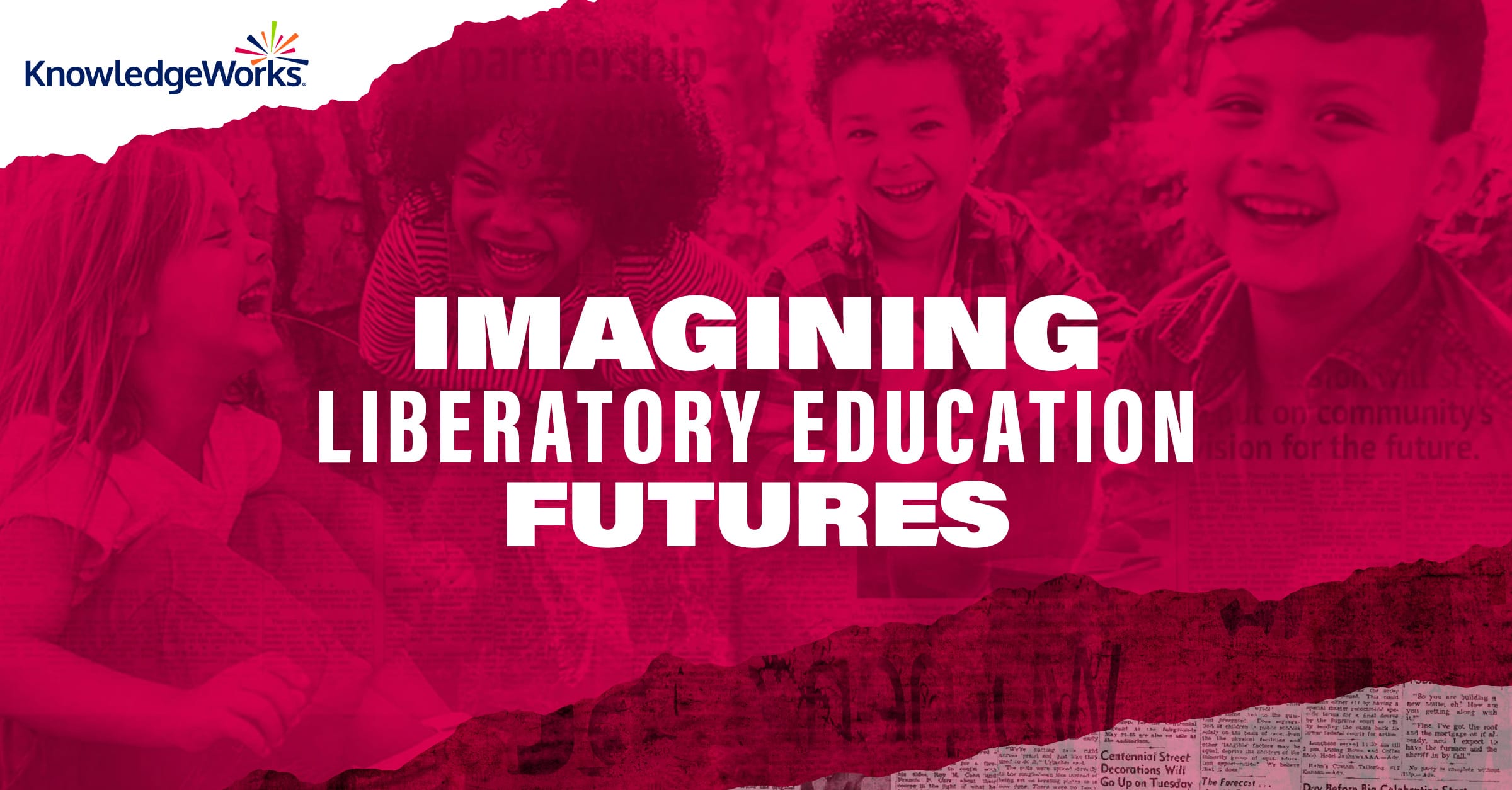Engaging with the Future of Learning
What might the education landscape look like in 10, even 20, years? By asking that question, we can anticipate change, explore strategic possibilities and identify ways of creating better opportunities for all learners. Thinking about the future of learning helps make today’s education system more effective.
Since 2006, KnowledgeWorks has been creating forecasts on the future of learning, looking into critical education issues and the tensions that arise from them and suggesting ways of translating insights about the future into action today.
Our forecasts address foundational issues on the horizon and can be used to generate strategies for learning communities at the state and local levels.

Imagining Liberatory Education Futures
Acting today to shape the future
In ways that are tailored to your needs, we can help partners across various levels of education systems – including policymakers, educators, learners and business and community leaders – consider what future possibilities could mean in their context and how they might want to respond.
- We partner with states, communities and education groups to explore future possibilities, consider their implications and identify ways of taking action today to pursue preferred futures and create better opportunities for every learner
- We bring together education stakeholders, build open and inclusive conversations and work toward a shared vision for the future of learning for a state, community or district
- We spark new thinking about the future of learning through engaging with concepts and strategies in our forecasts and guides through reading, workshops and presentations
Focus on the Future
Thinking about the future of learning helps make today’s education systems more effective. The future doesn’t rest on one person’s shoulders. It’s everyone’s.

